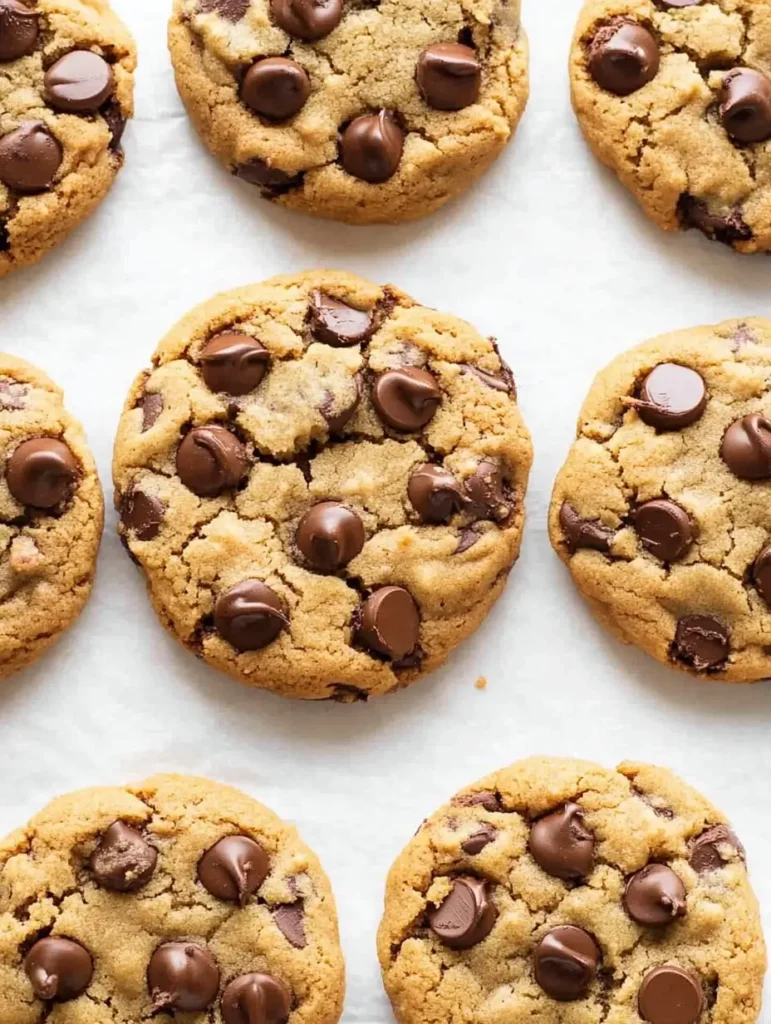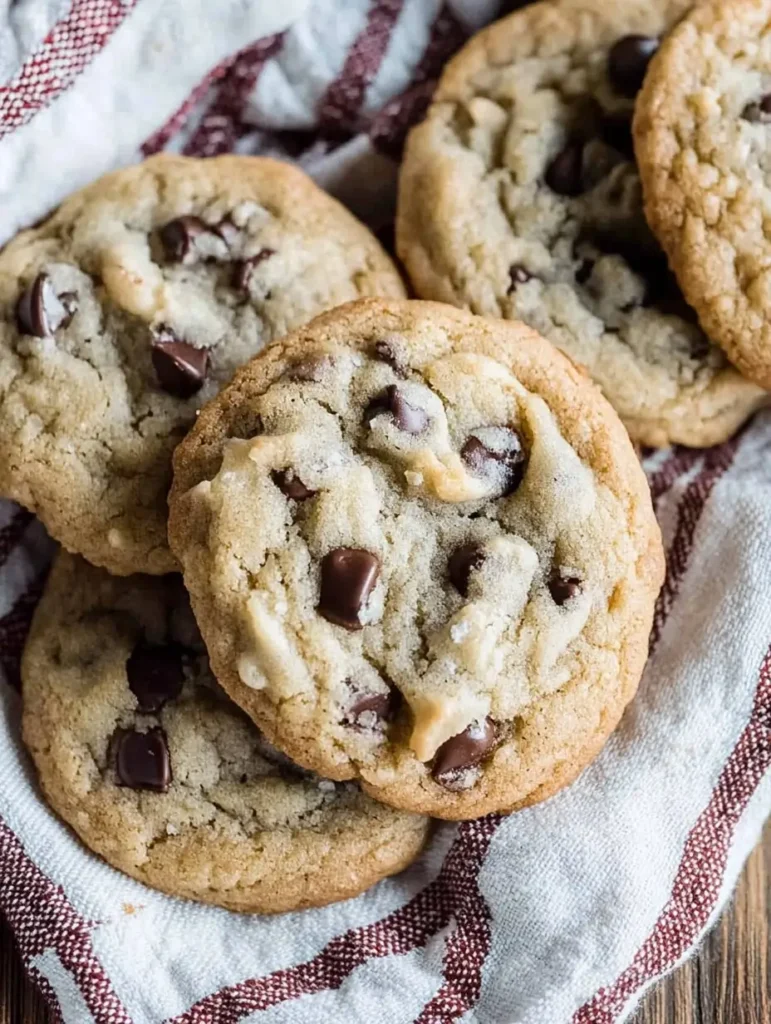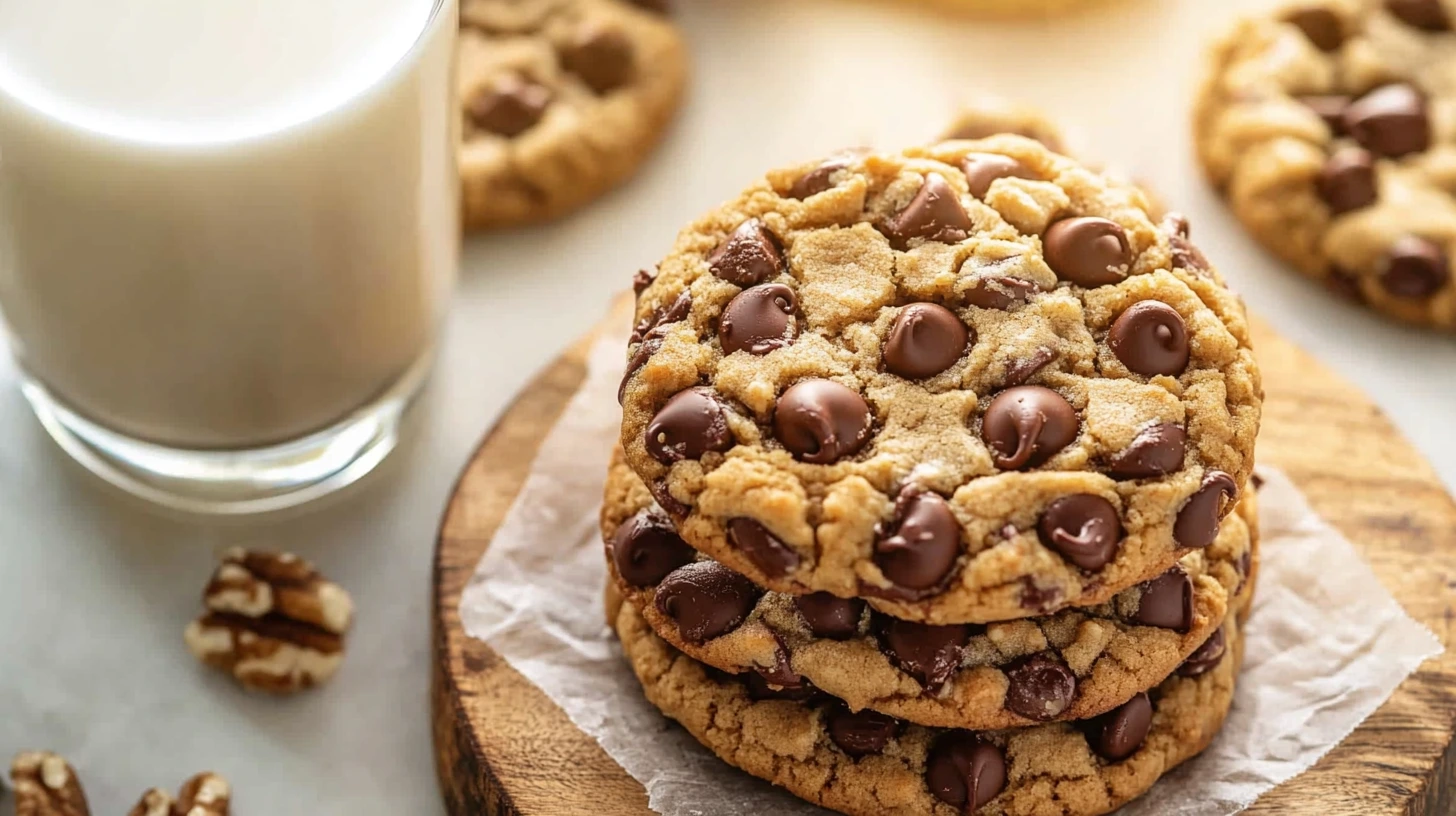A protein cookie is the perfect blend of taste and nutrition, offering a healthy, protein-packed alternative to traditional cookies. These treats have become incredibly popular among fitness enthusiasts, busy professionals, and anyone looking for a guilt-free snack. Whether you need a post-workout boost or a convenient on-the-go option, a protein cookie can meet your needs without compromising flavor.
Table of contents
1. What Are Protein Cookies?
Protein cookies are not your ordinary sweet treats. Instead, these cookies are specially crafted to offer a balance of nutrients, with a significant boost of protein, making them a popular choice for health-conscious individuals. Unlike regular cookies, which are often loaded with refined sugars and unhealthy fats, protein cookies are designed to be both tasty and nutritious. Consequently, they appeal to those looking for a convenient snack without compromising on health.
1.1 Definition of Protein Cookies
At their core, protein cookies are cookies enriched with protein-rich ingredients like whey protein, pea protein, or almond flour. On one hand, they maintain the texture and sweetness of traditional cookies. On the other hand, they pack a nutritional punch by including macronutrients that support muscle recovery, energy maintenance, and overall health. Therefore, they are ideal for anyone seeking a balance between indulgence and nutrition.
1.2 Ingredients Used in Protein Cookies
To achieve their high-protein content, these cookies incorporate several wholesome ingredients, such as:
- Whey Protein Isolate: A fast-digesting protein that is ideal for post-workout recovery.
- Plant-Based Proteins: Such as pea protein or brown rice protein, which cater to vegan-friendly diets.
- Oats or Almond Flour: Used as a healthier alternative to refined flours, providing additional fiber and nutrients.
- Natural Sweeteners: Ingredients like honey, stevia, or erythritol are commonly used to replace refined sugar.
- Healthy Fats: Sources like peanut butter, almond butter, or coconut oil not only add flavor but also help keep you full longer.
By combining these ingredients, protein cookies become a nutritionally superior option compared to standard baked goods.
2. Nutritional Benefits of Protein Cookies
Protein cookies offer more than just a delicious flavor. Instead, they’re packed with essential nutrients that contribute to overall well-being. For this reason, they are an excellent addition to your diet, especially if you’re looking to increase your protein intake in a fun and satisfying way.
2.1 Protein Content and Muscle Recovery
Protein is vital for repairing and building muscles, especially after strenuous physical activity. Notably, protein cookies are a convenient way to boost your daily protein intake without resorting to traditional protein shakes. Furthermore, consuming one after a workout can help accelerate muscle recovery and reduce soreness.
As a result, protein cookies have become a favorite post-exercise snack among fitness enthusiasts.
2.2 Weight Management with Protein Cookies
In addition to supporting muscle recovery, protein cookies can be an effective tool for weight management. Because protein has a high satiety index, it helps you feel fuller for longer. For this reason, replacing calorie-dense snacks like chips or candy bars with a protein cookie can reduce hunger pangs and curb overeating.
Moreover, they’re an excellent snack for those on-the-go, providing sustained energy without causing a spike in blood sugar levels. This is especially beneficial for individuals managing their energy levels throughout the day.
Why Protein Cookies Are Gaining Popularity
Overall, protein cookies are becoming a pantry staple for many due to their versatility. For example, they can serve as:
- A quick breakfast on a busy morning.
- A mid-afternoon snack to combat energy dips.
- A pre- or post-workout fuel to optimize physical performance.
By delivering a healthier alternative to traditional baked goods, protein cookies prove that you don’t have to sacrifice taste for nutrition. As a result, they’re widely enjoyed by everyone, from athletes to casual snackers.

3. How to Choose the Best Protein Cookie
Choosing the right protein cookie doesn’t have to be complicated. By focusing on a few key things, like the ingredients and the amount of protein, you can find one that fits your needs. Here’s what to look for.
3.1 Ingredients to Look For
Start by checking the ingredient list. A good protein cookie uses simple, healthy ingredients. These are some to look for:
- High-Quality Protein: Ingredients like whey protein, casein, or plant-based proteins like pea protein are best.
- Natural Sweeteners: Honey, maple syrup, or stevia are better than refined sugar.
- Whole Grains: Ingredients like oats or almond flour add fiber and nutrients.
- Healthy Fats: Nuts, nut butter, or coconut oil give flavor and keep you feeling full.
Picking cookies with these ingredients means you’re getting snacks that are both tasty and good for you.
3.2 Avoiding Hidden Sugars and Additives
It’s also important to avoid cookies with too much sugar or artificial additives. Here’s how:
- Look for Hidden Sugars: Words like “corn syrup” or “maltose” often mean added sugar.
- Skip Artificial Ingredients: Flavors or preservatives may make the cookie last longer, but they aren’t always healthy.
- Watch Calories: Some cookies are high in calories because of extra fillers.
Tip: Check the nutrition label. A good protein cookie has at least 10 grams of protein and less than 5 grams of sugar per serving.
4. DIY Protein Cookie Recipes
If you don’t like store-bought cookies or want full control over the ingredients, making your own is a great option. Homemade protein cookies are easy, fresh, and cost less. Plus, you can customize them to your taste.
4.1 Classic Chocolate Chip Protein Cookies
Everyone loves chocolate chip cookies, and adding protein makes them even better. Try this simple recipe:
Ingredients:
- 1 cup almond flour
- 1 scoop vanilla or chocolate protein powder
- 1/3 cup dark chocolate chips
- 1/4 cup almond butter
- 2 tablespoons honey or maple syrup
- 1 egg
- 1 teaspoon vanilla extract
Instructions:
- Heat your oven to 350°F (175°C).
- Mix the almond flour and protein powder in a bowl.
- Add almond butter, honey, egg, and vanilla, and stir until smooth.
- Fold in the chocolate chips.
- Scoop onto a baking tray with parchment paper and flatten each cookie.
- Bake for 10–12 minutes, then let them cool before eating.
4.2 Vegan Protein Cookies
For those who don’t eat animal products, vegan protein cookies are a great choice. Use plant-based protein powder, and replace eggs with applesauce or flaxseed meal.
Recipe Highlight: Mix oats, banana puree, peanut butter, and plant protein powder, then bake for 12–15 minutes.
4.3 No-Bake Protein Cookies
If you’re short on time, no-bake cookies are the perfect solution. You don’t need an oven—just mix, shape, and chill.
Example Recipe: Combine oats, peanut butter, honey, and chocolate protein powder. Shape into small cookies or balls, then put them in the fridge until firm.
With these tips and recipes, you’ll always have a delicious protein cookie option, whether you’re buying them or making them at home.
5. Are Protein Cookies Right for You?
Protein cookies might sound great, but are they the right choice for everyone? To decide, it’s important to think about your goals, lifestyle, and dietary needs. While these cookies are often healthy, they may not be perfect for every situation.
5.1 Best Times to Eat Protein Cookies
Knowing when to eat protein cookies can help you make the most of their benefits. Here are the best times to enjoy them:
- Before or After a Workout: Protein helps repair muscles, so eating a cookie before or after exercise is a smart choice. It gives you the energy you need and supports recovery.
- As a Midday Snack: If you feel hungry between meals, a protein cookie can keep you full without the empty calories of other snacks.
- At Breakfast: When you’re in a hurry, a protein cookie with a piece of fruit can make for a quick and balanced meal.
By eating protein cookies at these times, you can fuel your body while staying on track with your health goals.
5.2 Who Should Avoid Protein Cookies?
Even though protein cookies are healthy, they might not be suitable for everyone. Here’s who might want to limit or avoid them:
- People with Certain Allergies: Some cookies contain nuts, dairy, or gluten, which can be problematic for people with allergies or sensitivities.
- Those Watching Sugar Intake: Not all protein cookies are low in sugar. Always check the label if you’re managing your sugar levels.
- Anyone Overeating Protein: If your diet already has enough protein, adding more through cookies might not be necessary. Eating too much protein can put stress on your kidneys or lead to weight gain.
Tip: Always consider your dietary needs and read labels to make sure the cookie fits into your daily goals.
6. Popular Protein Cookie Brands Reviewed
If you’re not ready to make your own, there are plenty of store-bought options to choose from. Here’s a look at some of the most popular protein cookie brands:
6.1 Quest Protein Cookies
Quest cookies are known for being high in protein and low in sugar, making them a favorite for fitness enthusiasts. With flavors like chocolate chip and peanut butter, they’re a tasty option that won’t derail your diet.
Highlights:
- 15 grams of protein per cookie.
- Less than 1 gram of sugar.
- Gluten-free and keto-friendly.
6.2 Lenny & Larry’s Complete Cookie
Lenny & Larry’s cookies are larger and more filling, perfect for those with bigger appetites. They’re also vegan-friendly, using plant-based protein instead of whey.
Highlights:
- 16 grams of protein per cookie.
- No artificial sweeteners.
- Available in fun flavors like snickerdoodle and birthday cake.
6.3 Homemade vs. Store-Bought Protein Cookies
While store-bought cookies are convenient, homemade versions give you full control over the ingredients. This means you can customize the flavor, adjust the sweetness, and avoid unnecessary additives. On the other hand, store-bought cookies are a great choice if you’re short on time or need a snack on-the-go.
Why Protein Cookies Can Be a Great Choice
Protein cookies are more than just snacks—they’re a tool to help you stay healthy and energized. Whether you need a quick meal, a post-workout recovery boost, or a guilt-free treat, they offer a balanced solution.

7. Frequently Asked Questions About Protein Cookies
Protein cookies often raise questions, especially for people new to high-protein snacks. In this section, we’ll answer some of the most common queries to help you decide if protein cookies are right for you.
7.1 Are Protein Cookies Healthy?
Yes, protein cookies can be healthy, but it depends on the brand and ingredients. High-quality protein cookies are made with wholesome ingredients like natural sweeteners, whole grains, and protein isolates. They provide essential nutrients while being lower in sugar and calories than traditional cookies. However, some brands may add artificial flavors or extra sugar, which could reduce their health benefits.
Tip: Always read the nutrition label to make sure the cookie aligns with your goals. Look for one that’s high in protein and fiber but low in sugar.
7.2 Can Protein Cookies Replace Meals?
While protein cookies are nutritious, they aren’t a complete substitute for balanced meals. They can work as a quick snack or supplement when you’re short on time, but they don’t provide all the vitamins and minerals a full meal offers. For example, combining a protein cookie with a piece of fruit or a yogurt can make for a more balanced option.
7.3 Can I add protein powder to any cookie recipe?
Yes, but it requires some adjustments to ensure the texture and taste remain appealing. Adding protein powder can make cookies dense or dry, so it’s essential to balance it with moisture-rich ingredients like eggs or nut butter. For a detailed guide, check out our article on How to Add Protein Powder to a Cookie Recipe for Delicious and Nutritious Treats.
7.4 Are Protein Cookies Safe for Kids?
Protein cookies can be safe for children, but it’s essential to check the ingredients. Some cookies have high levels of protein or artificial additives, which might not be suitable for younger kids. If you’re giving them to children, opt for brands with natural ingredients or make your own at home to control the portion size and quality.
7.5 What Makes Protein Cookies Better Than Regular Cookies?
Protein cookies are better than regular cookies for several reasons:
- Higher Protein Content: They help with muscle repair and keeping you full longer.
- Lower Sugar: Many protein cookies use natural sweeteners or sugar substitutes.
- Healthier Ingredients: Whole grains, nuts, and natural fats make them a better choice.
These benefits make protein cookies a smarter snack, especially for those with health or fitness goals.
7.6 How Do Protein Cookies Help with Weight Loss?
Protein cookies support weight loss by curbing hunger. Protein is known to increase satiety, so eating a cookie as a snack can reduce the urge to overeat. Additionally, replacing high-calorie snacks with protein cookies can help you stick to your calorie goals.
Pro Tip: Pair a protein cookie with water or tea for an even more satisfying snack.
Key Takeaways About Protein Cookies
Protein cookies are versatile and convenient snacks that cater to a variety of needs. They’re a healthier option compared to traditional cookies, offering more nutrition without sacrificing taste. Whether you’re on a weight-loss journey, building muscle, or just looking for a tasty treat, protein cookies can fit into your lifestyle.
Conclusion: Why Protein Cookies Are a Smart Choice
Protein cookies have proven to be more than just a trend—they’re a versatile, healthy, and satisfying snack for people of all lifestyles. Whether you’re an athlete aiming to recover after workouts, a busy professional needing a quick snack, or simply someone looking for a healthier alternative to traditional cookies, protein cookies offer something for everyone.
Whether you’re a fitness enthusiast or just love healthy treats, protein cookies are an excellent addition to your kitchen repertoire. For more gluten-free inspiration, visit our Ultimate Matcha Muffin Recipe with Almond Flour.

